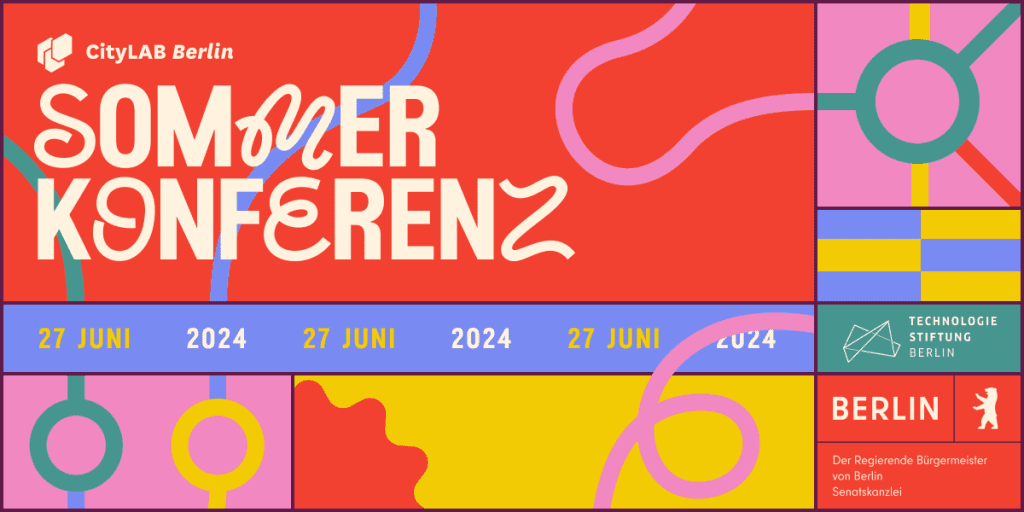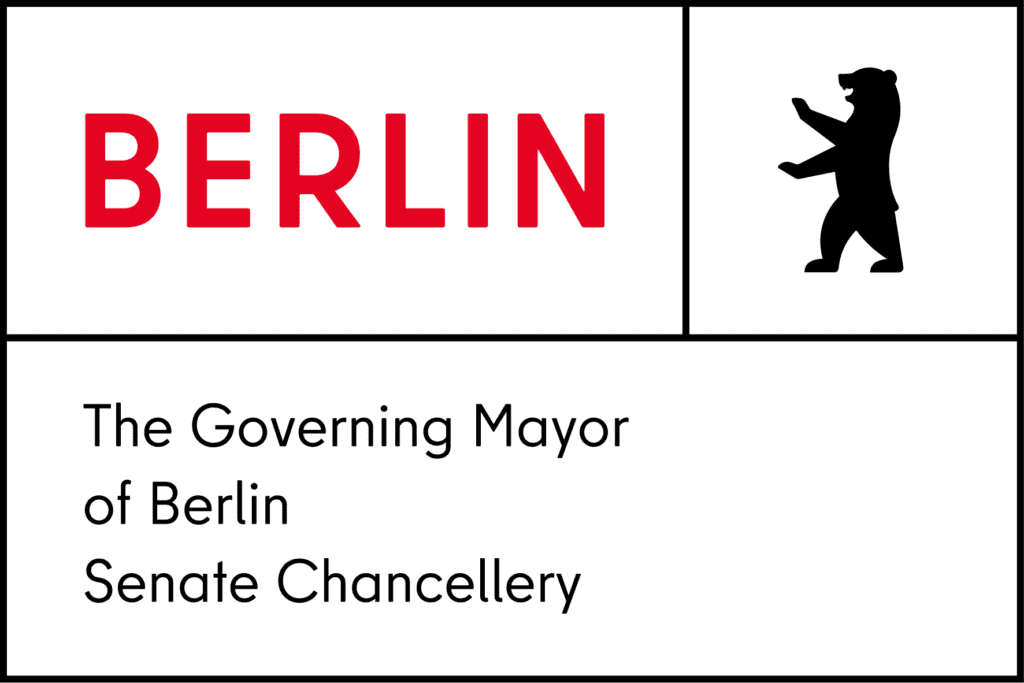At Treskowallee in Lichtenberg, from 3 June to 14 June, campus met city lab and thus science met neighbourhood: together with HTW Berlin, we attempted to build a bridge between campus life and the surrounding area with the Kiezlabor and thus create a meeting place for students, neighbourhood residents and neighbourhood stakeholders.
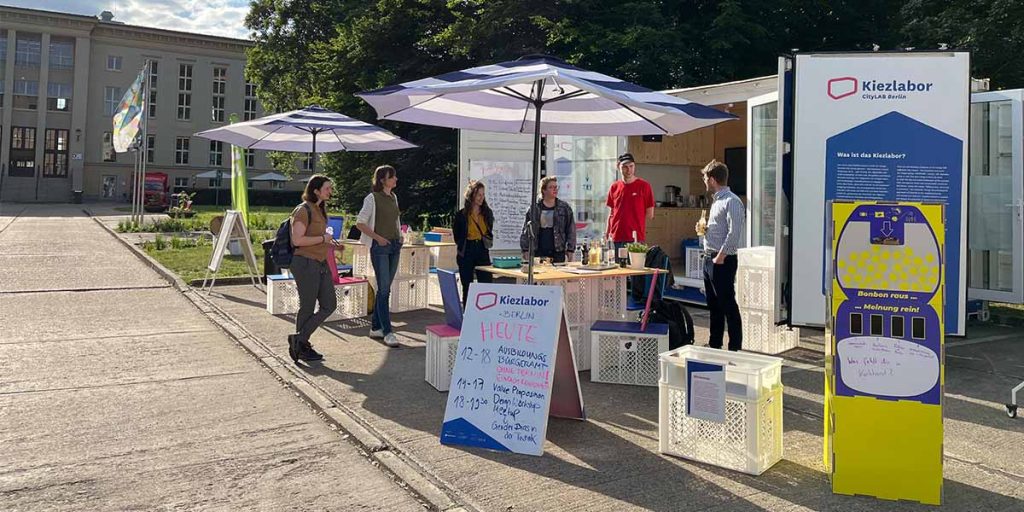
Common interests were quickly found – in the many workshops, keynote speeches, interactive formats and discussions that took place in the Kiezlabor, three topics came to light particularly often: Nature and environmental protection, upcycling and climate protection, and mobility. In this review, we explain why our Kiezlabor was temporarily transformed into a sewing machine workshop and why it’s worth slipping into different roles from time to time!
Eatable food along the roadside, environmental data and turning old into new
The best way to learn is with your own senses: That’s why, to kick off the new location, we first went in search of edible things. In the interactive walk to the “Edible City” by Simka Senyak from The Wild Path, the participants (re)discovered all kinds of plants in the immediate neighbourhood and tasted their own finds in the form of a homemade pesto made from wild rocket, nettles and ribwort directly in the Kiezlabor – and were positively surprised by the taste!
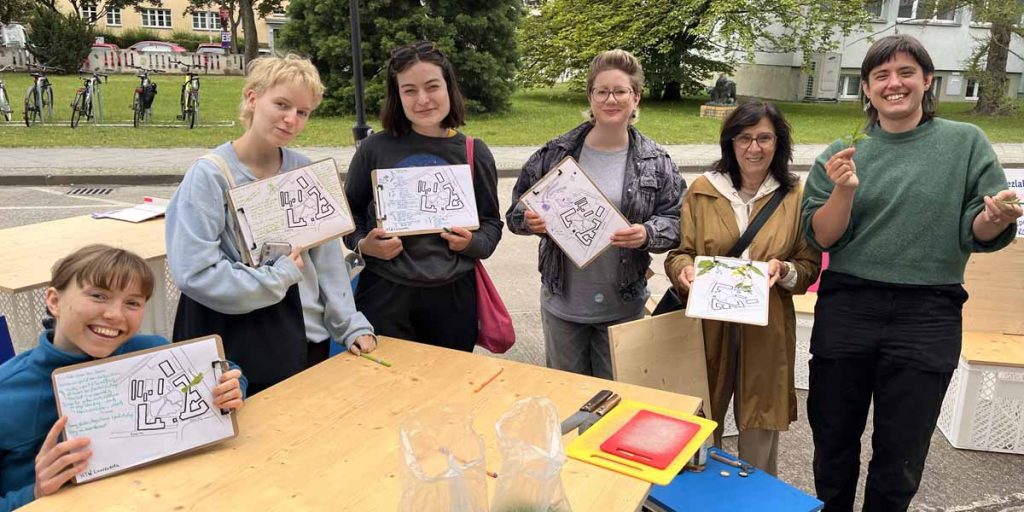
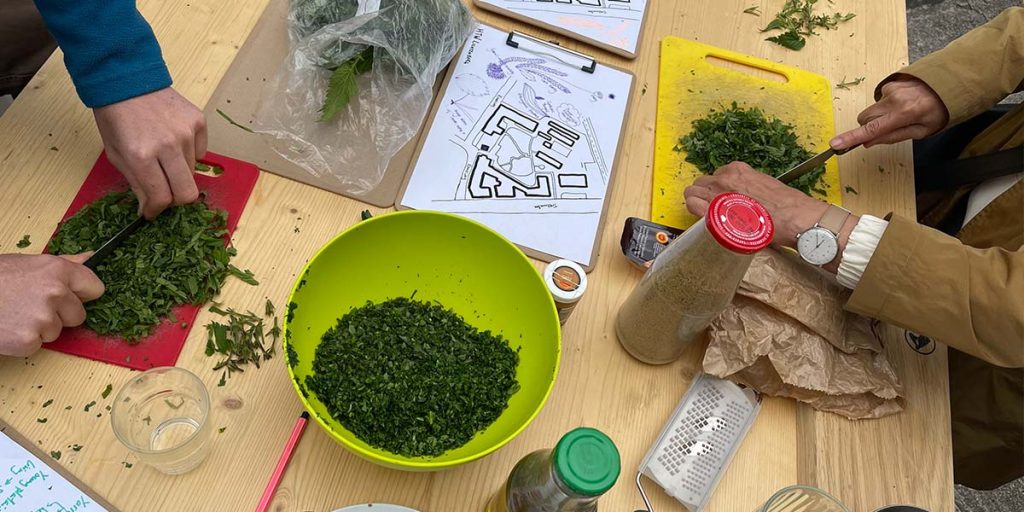
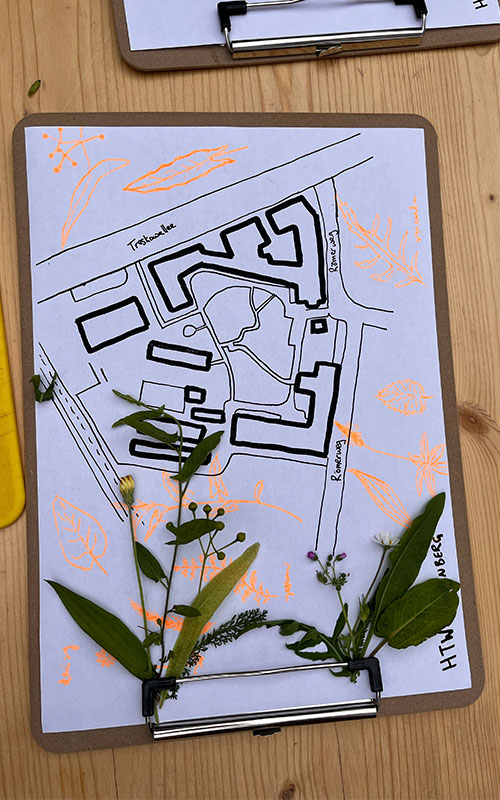
But people don’t just need healthy food to live – they also need fresh air! On the Langen Tag der StadtNatur (Long Day of CityNature), we joined our colleague Carolin Clausnitzer to immerse ourselves in the topic of citizen science. After a brief introduction to environmental sensor technology, we used the Smart Citizen Kit to carry out our own measurements of air quality, noise pollution and light pollution. The microcontroller and sensors were first connected to the laptop and then to the participants’ own smartphones. In this way, the participants were able to enter into a new exchange with their environment by collecting data and thus recognise connections that otherwise often remain hidden from our senses.
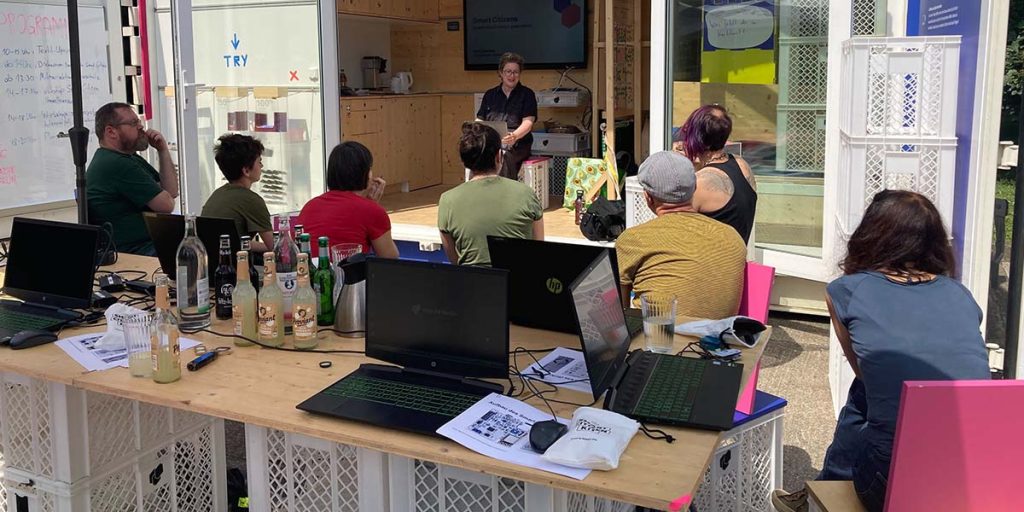
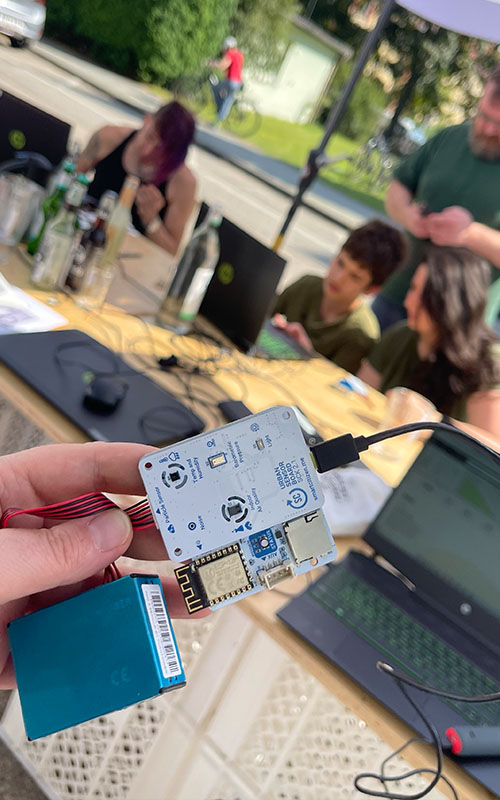
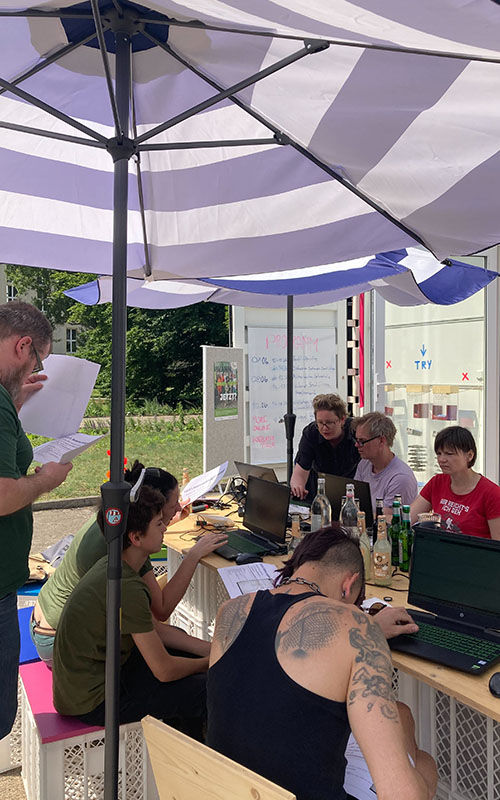
The Department of Design and Culture at HTW Berlin is also taking a new look at the familiar – and immediately set to work with sewing machines to illustrate this! This degree programme is not primarily about fashion, but about understanding and improving the sustainability of materials and processes, reported research assistant Tanita Behrendt. The students look at how waste can be reduced and how the circularity of textiles can be increased.
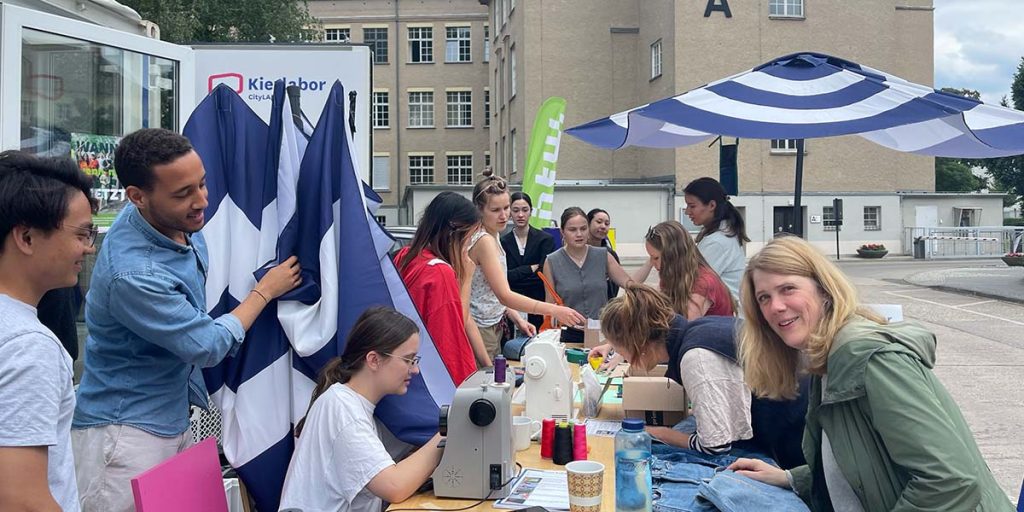
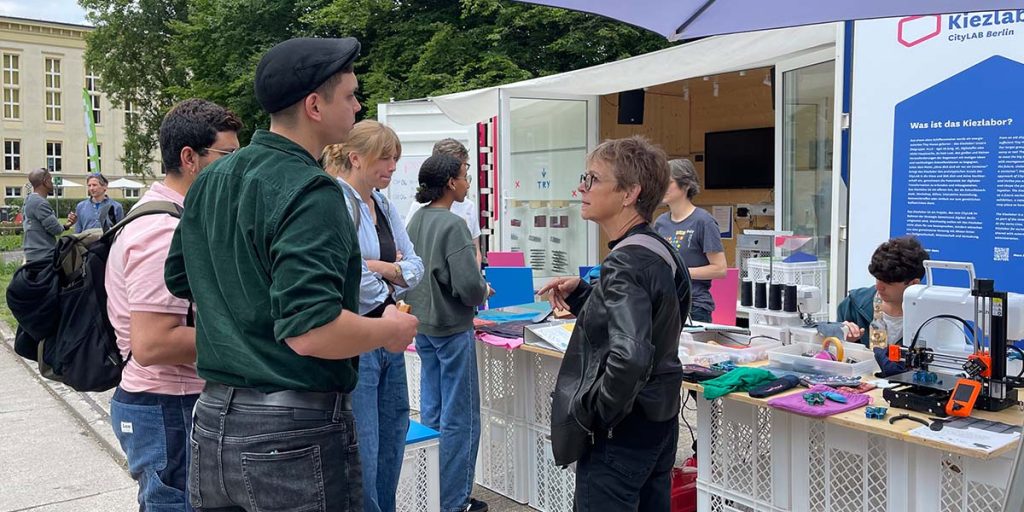
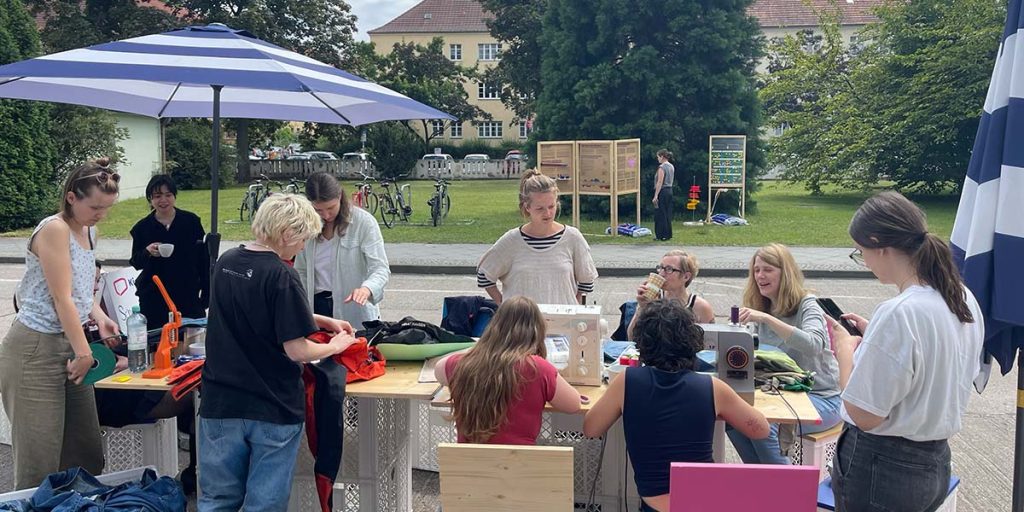
Our Kiezlabor visitors were able to try out for themselves just how easy upcycling with textiles can be and immediately got down to business – with their own creations, for example by converting old jeans trousers into wearable flower pots.
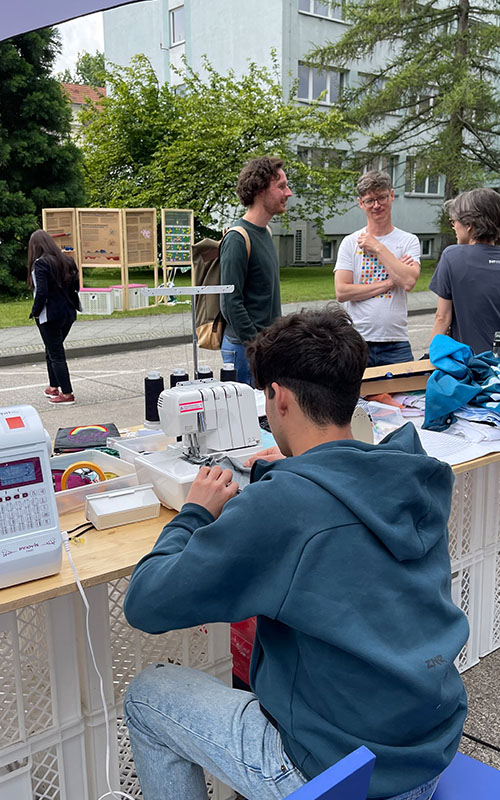
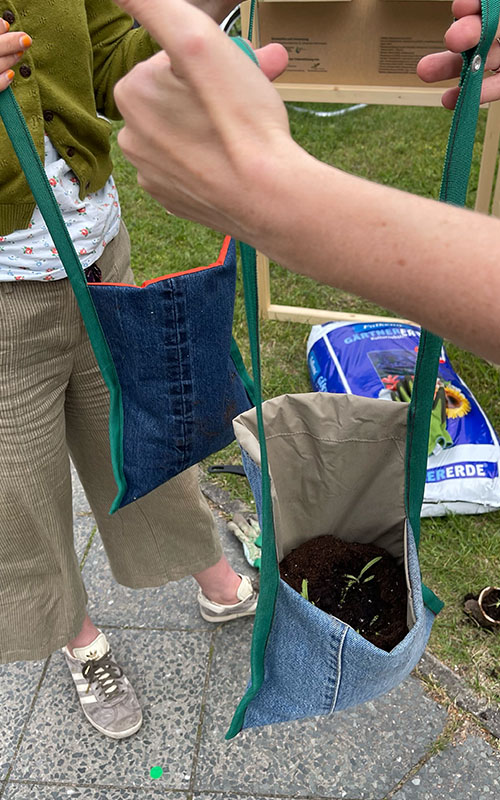
In addition to the careful use of resources, the Kiezlabor also focussed on the preservation of biodiversity. In her presentation, Dr Susann Ullrich impressively explained how empty our supermarket shelves and ultimately our plates would look if it weren’t for the hard-working little pollinators. To protect them, we need more green spaces in cities – not trimmed lawns, but colourful wild meadows that insects can call home. So if your own flower box looks like cabbage and turnips again – that’s fine, just leave it as it is and make a contribution to biodiversity at the same time!
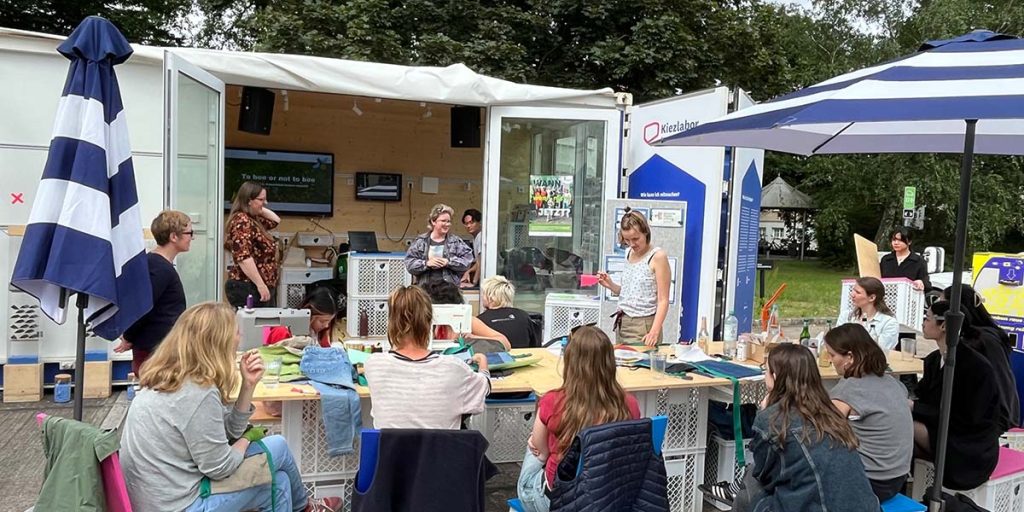
Bürgeramt 2.0: Services without an appointment
In addition to analysing needs in the various Berlin districts, a particular concern of our mobile container is to promote exchange between the administration and citizens. That’s why we were delighted to once again host the local training citizens’ office in Lichtenberg. Over two days, the employees offered advice and selected services – without an appointment, directly on site. So it’s no wonder that a long queue quickly formed in front of our Kiezlabor and, to our delight, Martina Klement, Berlin’s Chief Digital Officer, also dropped by for a visit to talk to the local people and the Ausbildungsbürgeramt.
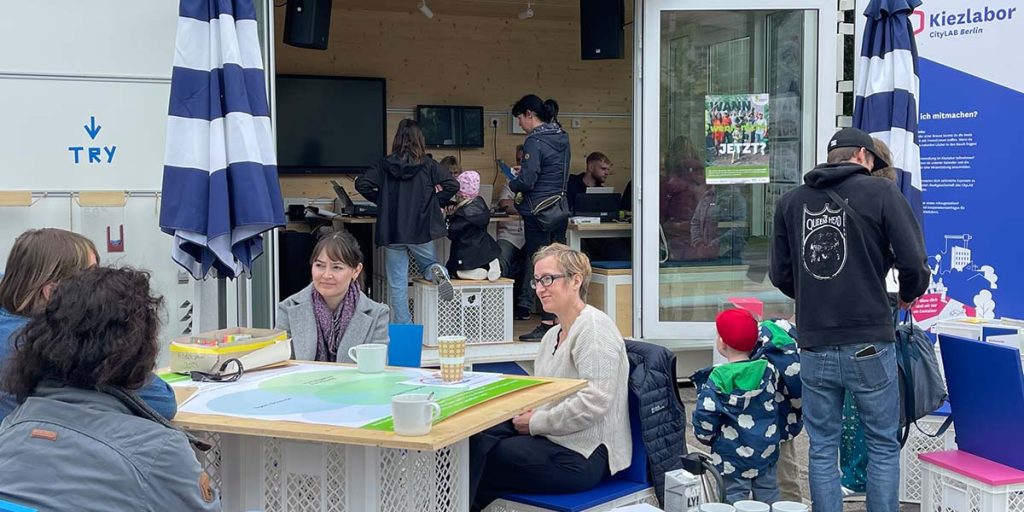
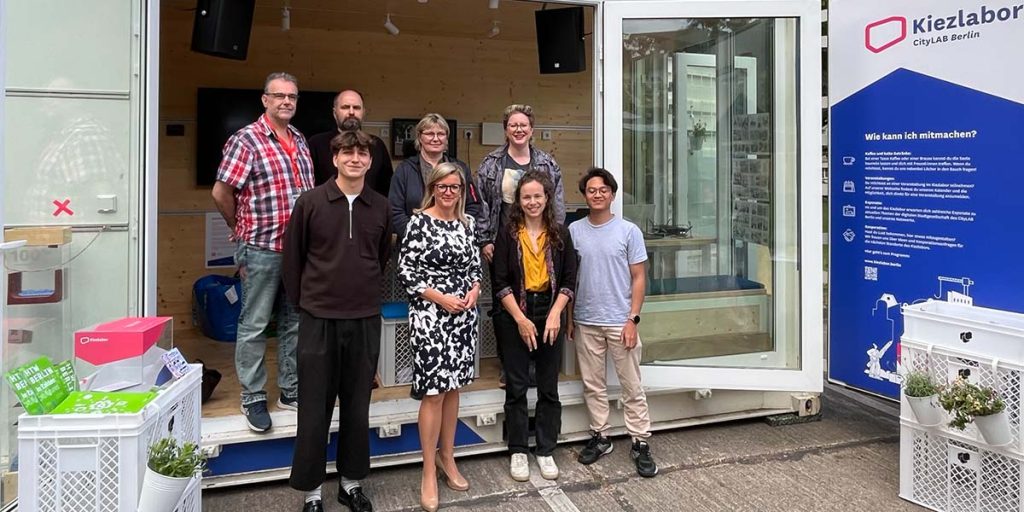
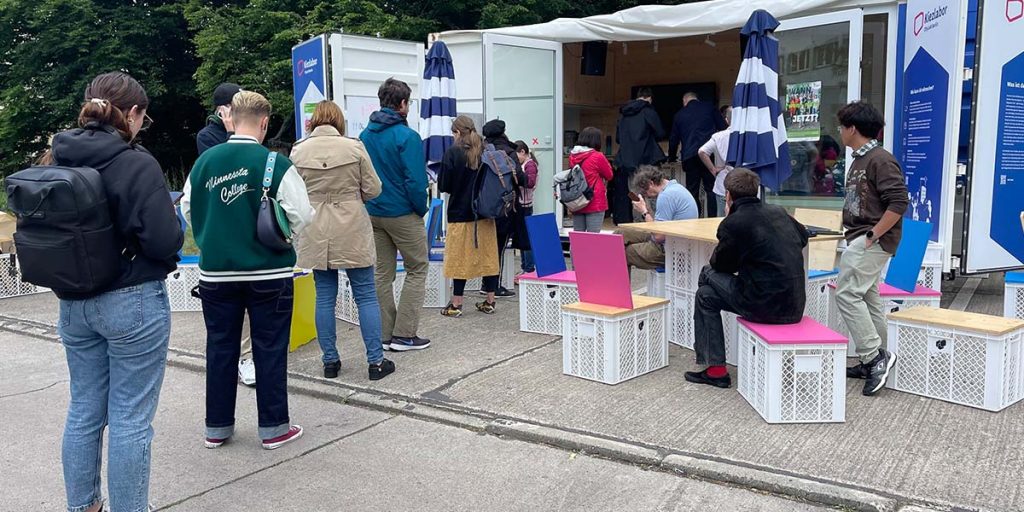
Sustainability goals versus mobility
We also discussed the big questions of the (neighbourhood) future – especially with regard to transport and the fulfilment of the sustainability goals. Representatives from the district, academia and civil society came together to discuss how Lichtenberg can become more sustainable.
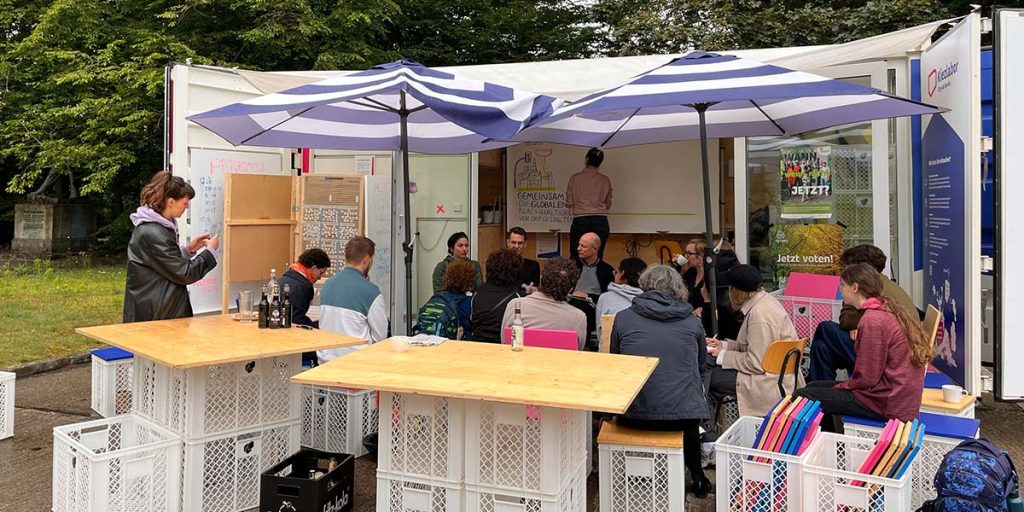
Filiz Keküllüoğlu, City Councillor for Transport, Green Spaces, Public Order, Environment and Nature Conservation, is aware of the challenges in the local transport network: new major roads are being planned, while at the same time residents want traffic to be calmed. Her plea on this day: science must be listened to more and findings from studies must be given greater consideration in construction projects. There also needs to be better alternatives to the car in the city.
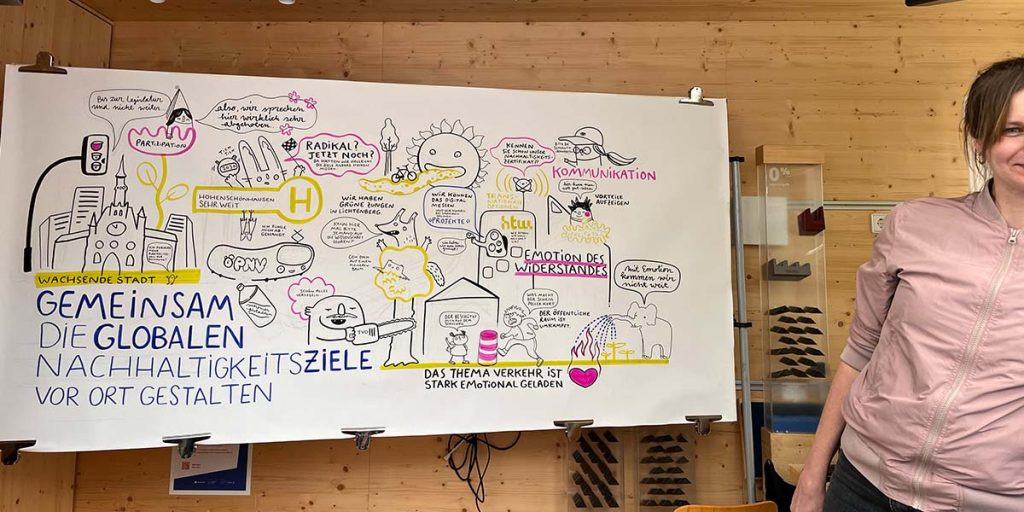
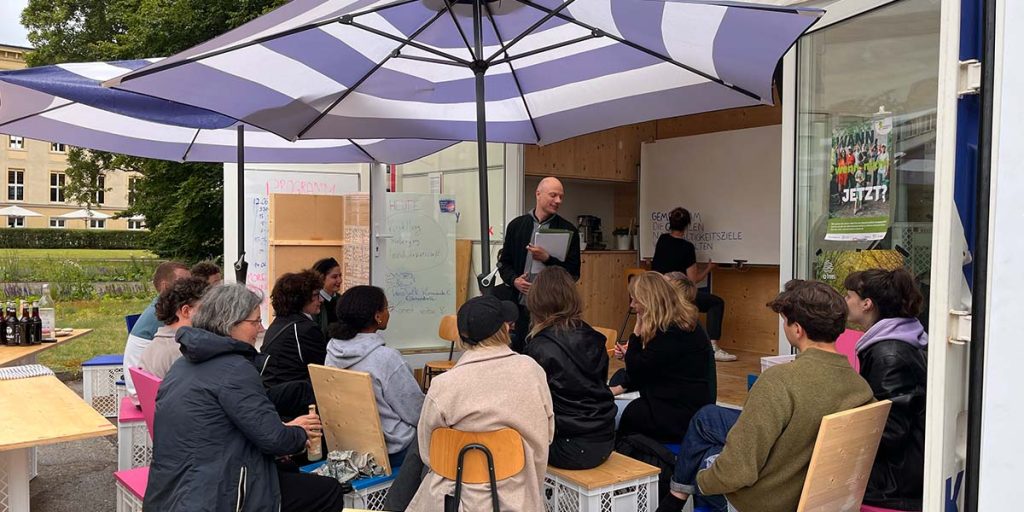
An alternative that is already very popular was put through its paces and repaired at the Garage 10 e.V. bicycle workshop in our Kiezlabor. The organisation offers help for self-help and tries to help refugees and people in need to get a bike by repairing donated bikes together. The project has been very popular with our visitors and has got some bikes rolling again safely.
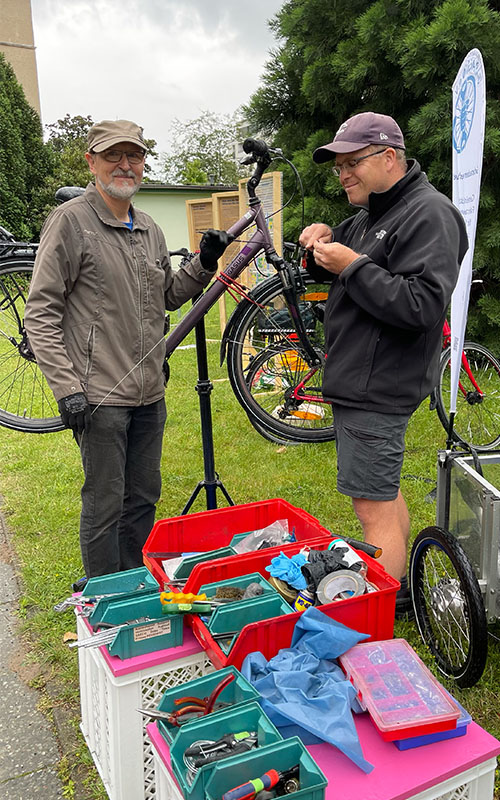
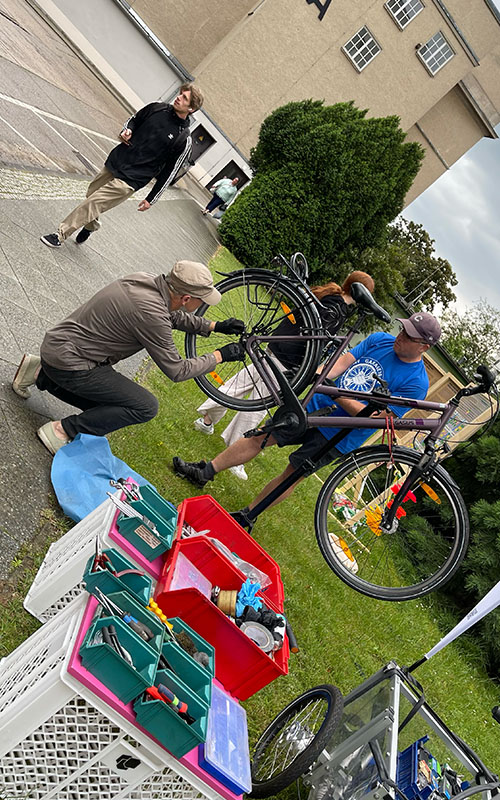
Things got serious and playful at the same time during the BVV simulation game Fahrradstrasse at Lichtenberg City Library. Slipping into a different role and having to come to a decision together – not so easy when opposing perspectives on an issue clash. In this simulation game, the players have to do exactly that in the role of members of a district council and discuss arguments for and against the conversion of a neighbouring street into a cycle lane.
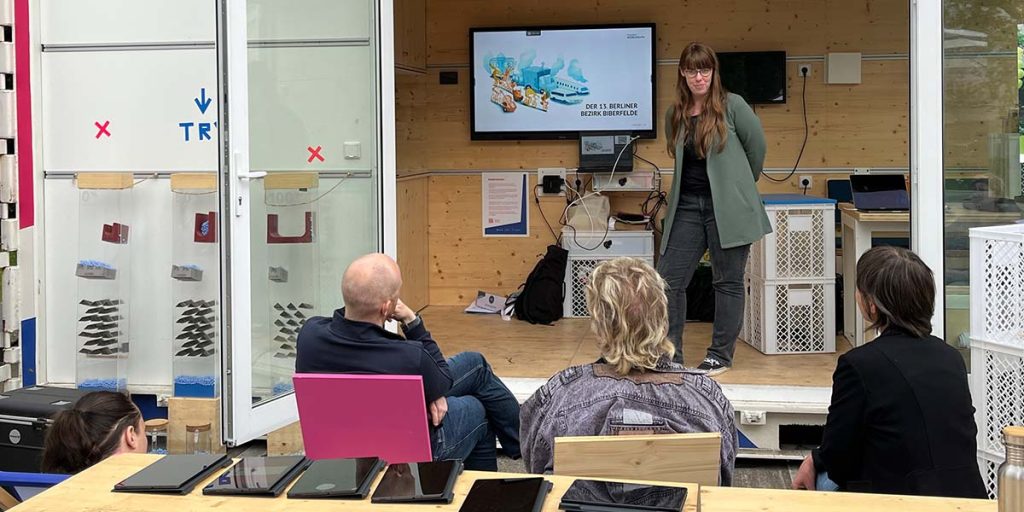
The participants were not only able to put their acting and diplomatic skills to the test, but also learnt a lot about how this form of political engagement works in real life – a positive experience for some, which also reduced their fear of political engagement.
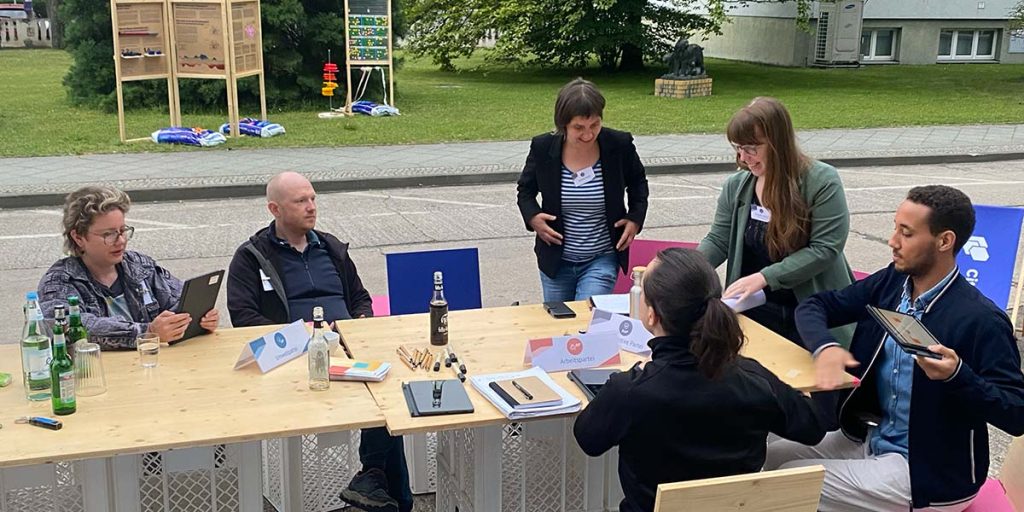
We hope that our presence with the Kiezlabor in Lichtenberg has also broken down the one or other barrier between “science and neighbourhood”! Now our container is getting dressed up for its first appearance at a birthday party, namely that of its creator: CityLAB Berlin is five years old! We’ll be celebrating this and more at this year’s Sommerkonferenz on 27 June, where the Kiezlabor will be putting on its own programme at Haus Ungarn – so come along, we look forward to seeing you!
